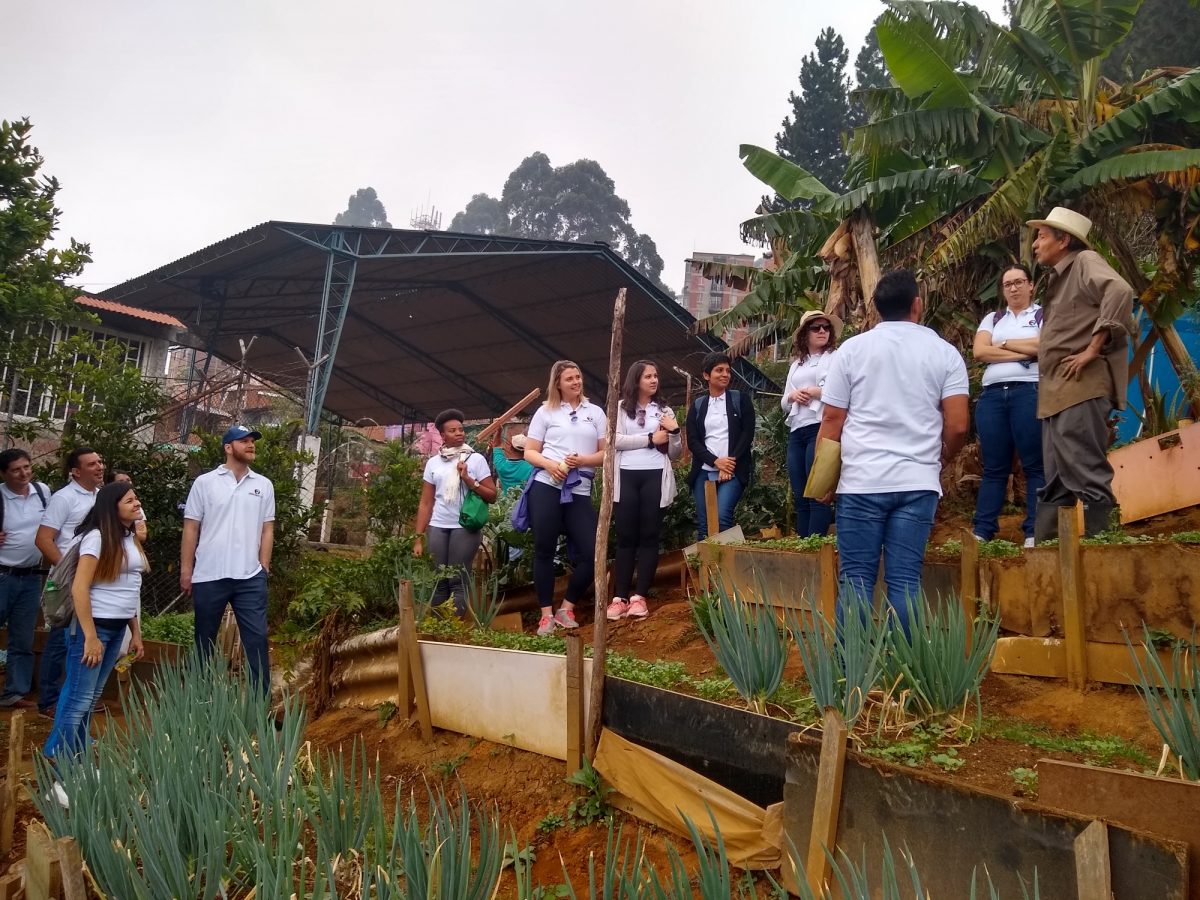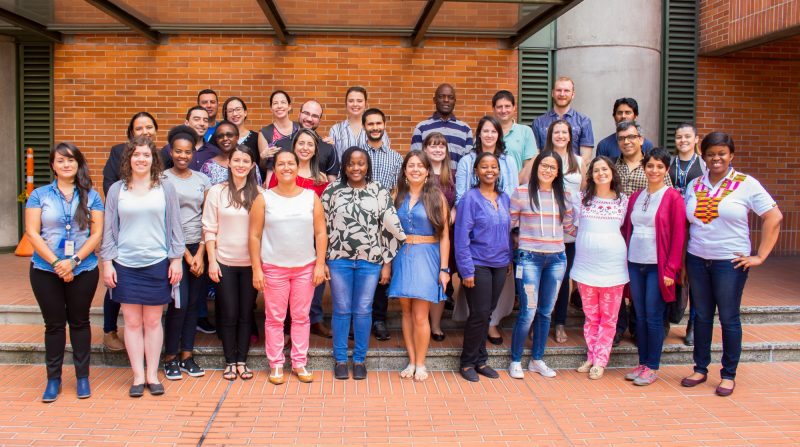
Students visiting local health advocate in La Cruz. He and his family grow food for the community
UM-based Global Health Training Program sends 11 PhD students to Colombia
This past winter, 11 University of Manitoba PhD students from the Rady Faculty of Health Sciences participated in the International Infectious Disease and Global Health Training Program’s practical epidemiology course in Medellín, Colombia. It was hosted by the University of Antioquia and the Pontifical Bolivarian University and led by three professors specializing in Health Sciences, Epidemiology and Biomedical statistical analysis. The program brought together researchers from around the world to focus on addressing the spread of infectious diseases and their impact on global health. The program has four sites around the world that work together to address these issues. The countries involved are Canada, Colombia, India and Kenya.
One UM student who participated was recent Vanier Scholarship recipient Allison Balasko [BSc(Hons)/16]. UM Today caught up with her on her way back from Colombia to hear about what she learned about infectious diseases and the benefits of collaborating with peers from all over the world.
What are the major benefits of this program?
One of the major benefits of the International Infectious Disease and Global Health Training Program (IID & GHTP) is that programs like this lead us to draw parallels with our own communities, and they shape our understanding of diverse global health issues.
What were the most impactful elements of the program?
Two of the biggest takeaways from the course were the hands-on statistical learning that directly applied to our PhD projects and the Scientific Symposium that we participated in where experts in the field joined us for individual presentations. The program was transformational for many of us who had not presented internationally and sparked multiple discussions of potential future collaborations between PhD presenters and those professors. One professor suggested we collaborate on one of his future projects, and I think this demonstrates the significance of such international opportunities for the UM and its students.
What were some of the other highlights from the trip?
One of the highlights was our visit to a rural neighborhood up the mountainside of Medellín called La Cruz. We toured the community and a primary care facility with two physicians and saw the circumstances people live in that influence the susceptibility of the infectious diseases we study. Sometimes, as researchers, we can be caught up in our own context of solving a problem in the lab. Experiencing what the people of La Cruz go through first-hand, reminded us of the reasons why we do the work we do, and further motivated me to continue in the pursuit of excellence to support our global community.
What did your colleagues from UM think of the program?
Many of my classmates were very moved and motivated by their experience in La Cruz. Medical microbiology and infectious diseases student Jasmine Frost said, “As a student who intends to pursue a career in public health, having a global experience in social determinants of health will allow me to be more objective when addressing public health problems.” Another colleague, Abu Bakar Siddik, shared, “This experience will help me in the future when thinking of delivering healthcare to inaccessible communities.”
The experiences gained through this IID&GHTP Major Course in Medelln, Colombia were invaluable, we learned a breadth of skills, helping develop us into the next wave of Infectious Disease researchers.

Group photo of the 2019 IID&GHTP Major Course “Practical Epidemiology”, Medellín, Colombia.
The participation of these 11 UM PhD students in the IID&GHTP 2019 Major Course was financially supported by the Rady Faculty of Health Sciences.






